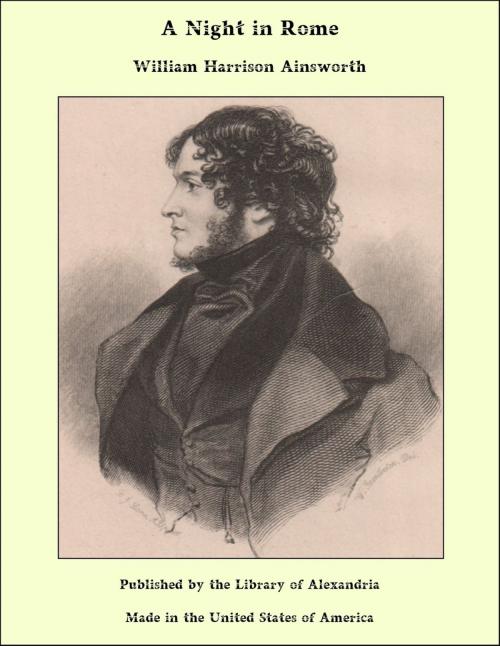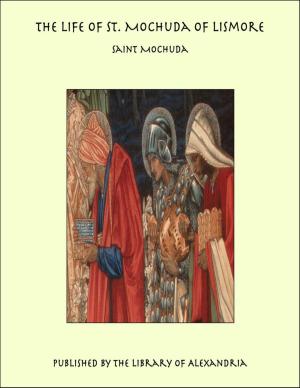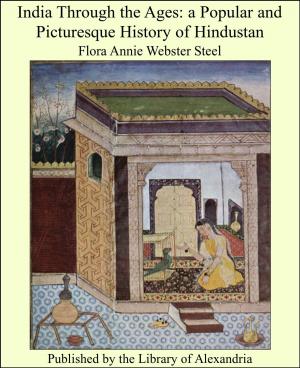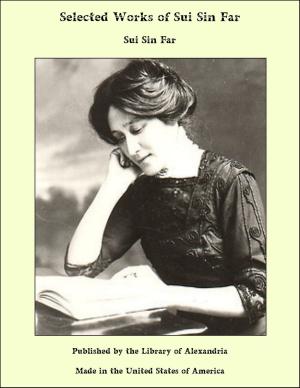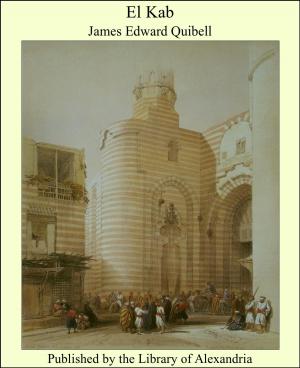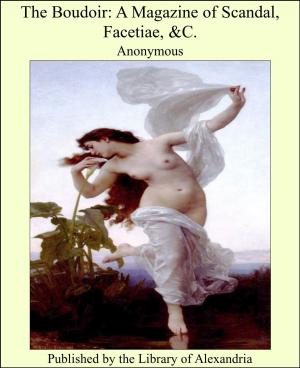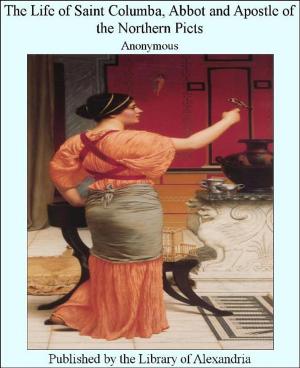| Author: | William Harrison Ainsworth | ISBN: | 9781465603951 |
| Publisher: | Library of Alexandria | Publication: | March 8, 2015 |
| Imprint: | Language: | English |
| Author: | William Harrison Ainsworth |
| ISBN: | 9781465603951 |
| Publisher: | Library of Alexandria |
| Publication: | March 8, 2015 |
| Imprint: | |
| Language: | English |
Chancing to be in Rome in the August of 1830, I visited the gorgeous church of Santa Maria Maggiore during the celebration of the anniversary of the Holy Assumption. It was a glorious sight to one unaccustomed to the imposing religious ceremonials of the Romish church, to witness all the pomp and splendour displayed at this high solemnity — to gaze down that glittering pile, and mark the various ecclesiastical dignitaries, each in their peculiar and characteristic costume, employed in the ministration of their sacred functions, and surrounded by a wide semicircle of the papal guards, so stationed to keep back the crowd, and who, with their showy scarlet attire and tall halberds, looked like the martial figures we see in the sketches of Callot. Nor was the brilliant effect of this picture diminished by the sumptuous framework in which it was set. Overhead flamed a roof resplendent with burnished gold; before me rose a canopy supported by pillars of porphyry, and shining with many-coloured stones; while on either hand were chapels devoted to some noble house, and boasting each the marble memorial of a pope. Melodious masses proper to the service were ever and anon chanted by the papal choir, and overpowering perfume was diffused around by a hundred censers. Subdued by the odours, the music, and the spectacle, I sank into a state of dreamy enthusiasm, during a continuance of which I almost fancied myself a convert to the faith of Rome, and surrendered myself unreflectingly to an admiration of its errors. As I gazed among the surrounding crowd, the sight of so many prostrate figures, all in attitudes of deepest devotion, satisfied me of the profound religious impression of the ceremonial. As elsewhere; this feeling was not universal; and, as elsewhere, likewise, more zeal was exhibited by the lower than the higher classes of society; and I occasionally noted amongst the latter the glitter of an eye or the flutter of a bosom, not altogether agitated; I suspect; by holy aspirations. Yet me thought, on the whole, I had never seen such abandonment of soul, such prostration of spirit, in my own colder clime, and during the exercise of my own more chastened creed, as that which in several instances I now beheld; and I almost envied the poor maiden near me, who, abject upon the earth, had washed away her sorrows, and perhaps her sins, in contrite tears.
Chancing to be in Rome in the August of 1830, I visited the gorgeous church of Santa Maria Maggiore during the celebration of the anniversary of the Holy Assumption. It was a glorious sight to one unaccustomed to the imposing religious ceremonials of the Romish church, to witness all the pomp and splendour displayed at this high solemnity — to gaze down that glittering pile, and mark the various ecclesiastical dignitaries, each in their peculiar and characteristic costume, employed in the ministration of their sacred functions, and surrounded by a wide semicircle of the papal guards, so stationed to keep back the crowd, and who, with their showy scarlet attire and tall halberds, looked like the martial figures we see in the sketches of Callot. Nor was the brilliant effect of this picture diminished by the sumptuous framework in which it was set. Overhead flamed a roof resplendent with burnished gold; before me rose a canopy supported by pillars of porphyry, and shining with many-coloured stones; while on either hand were chapels devoted to some noble house, and boasting each the marble memorial of a pope. Melodious masses proper to the service were ever and anon chanted by the papal choir, and overpowering perfume was diffused around by a hundred censers. Subdued by the odours, the music, and the spectacle, I sank into a state of dreamy enthusiasm, during a continuance of which I almost fancied myself a convert to the faith of Rome, and surrendered myself unreflectingly to an admiration of its errors. As I gazed among the surrounding crowd, the sight of so many prostrate figures, all in attitudes of deepest devotion, satisfied me of the profound religious impression of the ceremonial. As elsewhere; this feeling was not universal; and, as elsewhere, likewise, more zeal was exhibited by the lower than the higher classes of society; and I occasionally noted amongst the latter the glitter of an eye or the flutter of a bosom, not altogether agitated; I suspect; by holy aspirations. Yet me thought, on the whole, I had never seen such abandonment of soul, such prostration of spirit, in my own colder clime, and during the exercise of my own more chastened creed, as that which in several instances I now beheld; and I almost envied the poor maiden near me, who, abject upon the earth, had washed away her sorrows, and perhaps her sins, in contrite tears.
